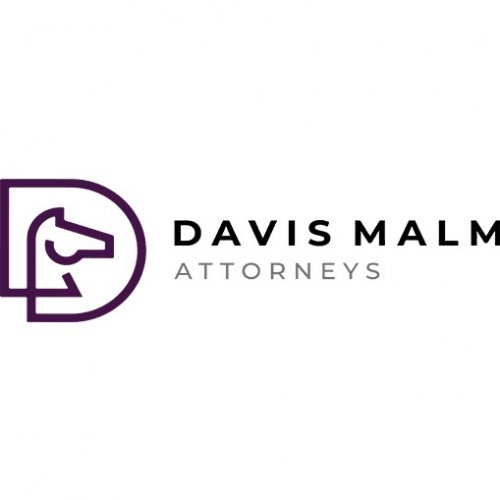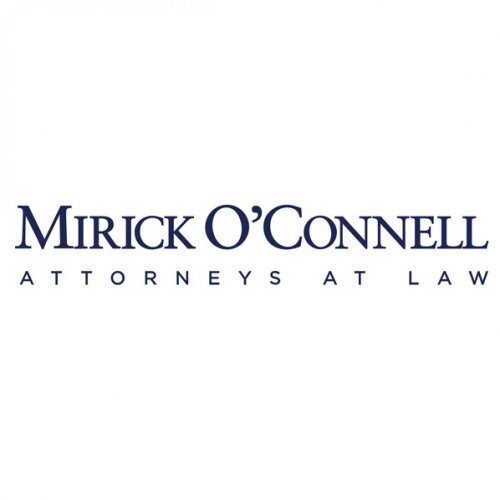Best Bankruptcy Lawyers in Massachusetts
Share your needs with us, get contacted by law firms.
Free. Takes 2 min.
Or refine your search by selecting a city:
List of the best lawyers in Massachusetts, United States
About Bankruptcy Law in Massachusetts, United States
Bankruptcy law provides a legal framework for individuals and businesses in Massachusetts who are unable to manage overwhelming debt. It is designed to offer a fresh financial start by discharging or restructuring debts under court supervision. Massachusetts follows the federal bankruptcy system, but also incorporates certain state-specific exemptions and rules. The process is handled in federal bankruptcy courts located throughout the state. Filing for bankruptcy can halt collection activities, prevent foreclosures, and offer an organized way to deal with creditors.
Why You May Need a Lawyer
Many people consider hiring a bankruptcy lawyer when faced with significant financial challenges. Common situations that may require legal help include:
- Dealing with wage garnishment, lawsuits, or creditor harassment
- Facing foreclosure or repossession of property
- Having complex financial situations with multiple assets or forms of income
- Uncertainty about which type of bankruptcy to file (Chapter 7, Chapter 13, etc.)
- Concerns about protecting specific assets, such as a home or vehicle
- Lack of understanding of the bankruptcy process and requirements
- Concerns about eligibility for bankruptcy and the means test
A lawyer can help evaluate your unique circumstances, explain your options, complete forms accurately, and represent your interests in court proceedings.
Local Laws Overview
Massachusetts follows the federal bankruptcy laws under the United States Bankruptcy Code. However, residents benefit from certain state-specific exemptions that can impact your case:
- Massachusetts Exemptions: Debtors can choose to use either federal or Massachusetts state exemptions to protect property such as a home, car, personal belongings, retirement accounts, and tools of trade.
- Homestead Exemption: Massachusetts offers a generous homestead exemption to protect a certain amount of equity in your primary residence. As of 2024, individuals can protect up to 500,000 dollars in equity.
- Means Test: To file for Chapter 7 bankruptcy, you must pass a means test that compares your income to the state median and examines your financial ability to repay debts.
- Residency Requirement: You must be a resident of Massachusetts for at least 730 days (two years) prior to filing to use the state exemptions.
- Bankruptcy Courts: All bankruptcy cases in Massachusetts are handled in one of the United States Bankruptcy Courts for the District of Massachusetts with locations in Boston, Worcester, and Springfield.
It is important to consider both federal and local laws to ensure your rights are protected and you maximize the available benefits when filing.
Frequently Asked Questions
What types of bankruptcy can I file in Massachusetts?
The most common types of bankruptcy filings for individuals and small businesses are Chapter 7 (liquidation) and Chapter 13 (reorganization). Chapter 11 is also available, mostly for businesses or individuals with substantial debts and assets.
Will filing for bankruptcy stop collection calls and lawsuits?
Yes, filing for bankruptcy triggers an automatic stay, which immediately halts most collection activities, including phone calls, wage garnishments, lawsuits, and foreclosures during the case.
Can I keep my home or car if I file for bankruptcy?
It depends on your situation. Massachusetts exemptions, especially the homestead exemption and motor vehicle exemption, can help protect your home and car equity. Proper planning and advice are essential.
How does bankruptcy impact my credit score?
Bankruptcy will negatively affect your credit score and remain on your credit report for up to 10 years (Chapter 7) or 7 years (Chapter 13), but many people can begin to rebuild credit soon after their case concludes.
Who qualifies for Chapter 7 bankruptcy in Massachusetts?
Eligibility depends on passing the means test, which compares your household income to the state median and examines your ability to pay debts. If your income is below the median or your disposable income is low, you may qualify.
What debts can be discharged in bankruptcy?
Most unsecured debts, such as credit cards, personal loans, and medical bills, can be discharged. However, certain debts like child support, most student loans, and some taxes cannot typically be wiped out.
Do I have to go to court if I file for bankruptcy?
You must attend a meeting of creditors (also called a 341 meeting), where the trustee and creditors can ask questions about your financial situation. Most debtors do not have to appear before a judge unless complications arise.
Can a bankruptcy filing stop foreclosure on my home?
Yes, an automatic stay is put in place immediately upon filing, which temporarily halts foreclosure proceedings. A Chapter 13 bankruptcy may help you catch up on missed mortgage payments and potentially keep your home.
How long does the bankruptcy process take?
Chapter 7 cases commonly take about four to six months from filing to discharge. Chapter 13 cases involve a repayment plan that lasts three to five years before any remaining qualifying debt is discharged.
Will everyone know I filed for bankruptcy?
Bankruptcy filings are public records, but unless someone specifically seeks the information or your case receives media attention, it is unlikely to be widely known beyond your creditors and those you tell.
Additional Resources
If you are seeking more information or need help, consider the following resources:
- U.S. Bankruptcy Court - District of Massachusetts: Provides case information, forms, and guidance for bankruptcy filings in Massachusetts.
- Massachusetts Attorney General's Office: Offers information on consumer rights and debt relief.
- Legal Services Organizations: Groups such as Massachusetts Legal Assistance Corporation or Greater Boston Legal Services offer free or low-cost legal aid.
- Consumer Credit Counseling Services: Non-profit organizations can help with budgeting, debt management, and evaluating bankruptcy alternatives.
- Local Bar Associations: Many bar associations offer lawyer referral services for bankruptcy attorneys in your area.
Next Steps
If you are considering bankruptcy in Massachusetts, take the following steps:
- Gather your financial records, including debts, income, assets, and expenses.
- Evaluate your situation to determine if bankruptcy is the right solution or if other options are available.
- Consult with a qualified bankruptcy attorney who can explain your options and protect your interests. Many offer free initial consultations.
- Attend any required credit counseling sessions, which are mandated before filing.
- Work closely with your attorney to complete the paperwork accurately and provide required documentation.
- Stay informed throughout the process, attend all required meetings, and respond promptly to requests from your lawyer or the court.
Filing for bankruptcy is a significant decision. Guidance from an experienced attorney can help you navigate the process, maximize exemptions, and achieve the best possible outcome for your situation.
Lawzana helps you find the best lawyers and law firms in Massachusetts through a curated and pre-screened list of qualified legal professionals. Our platform offers rankings and detailed profiles of attorneys and law firms, allowing you to compare based on practice areas, including Bankruptcy, experience, and client feedback.
Each profile includes a description of the firm's areas of practice, client reviews, team members and partners, year of establishment, spoken languages, office locations, contact information, social media presence, and any published articles or resources. Most firms on our platform speak English and are experienced in both local and international legal matters.
Get a quote from top-rated law firms in Massachusetts, United States — quickly, securely, and without unnecessary hassle.
Disclaimer:
The information provided on this page is for general informational purposes only and does not constitute legal advice. While we strive to ensure the accuracy and relevance of the content, legal information may change over time, and interpretations of the law can vary. You should always consult with a qualified legal professional for advice specific to your situation.
We disclaim all liability for actions taken or not taken based on the content of this page. If you believe any information is incorrect or outdated, please contact us, and we will review and update it where appropriate.
Browse bankruptcy law firms by city in Massachusetts
Refine your search by selecting a city.












